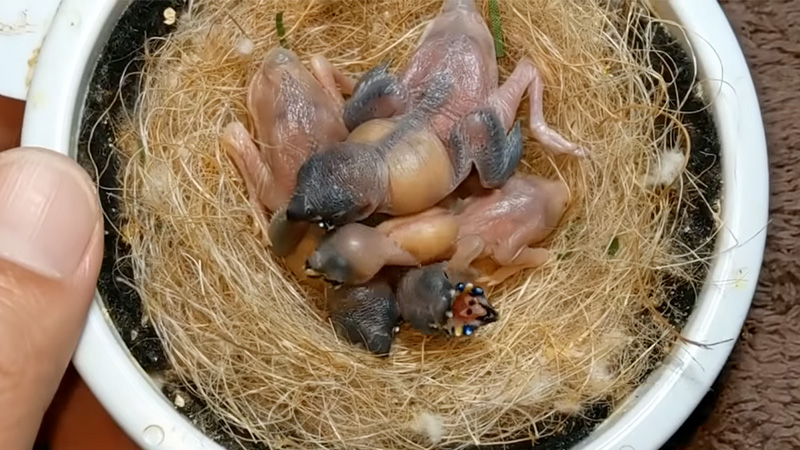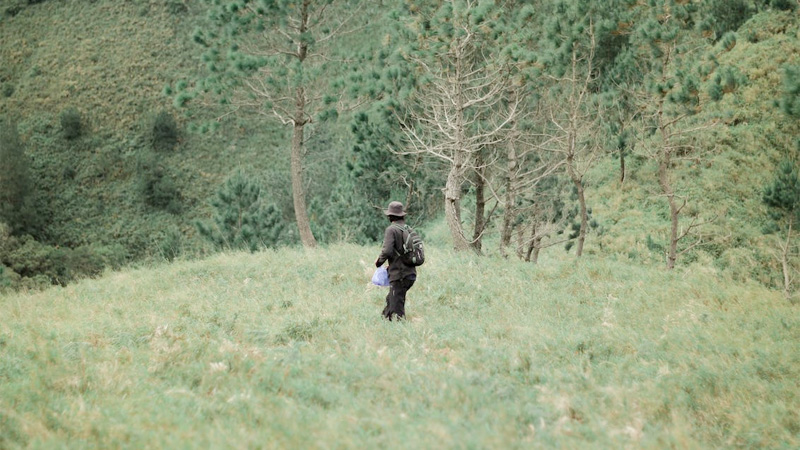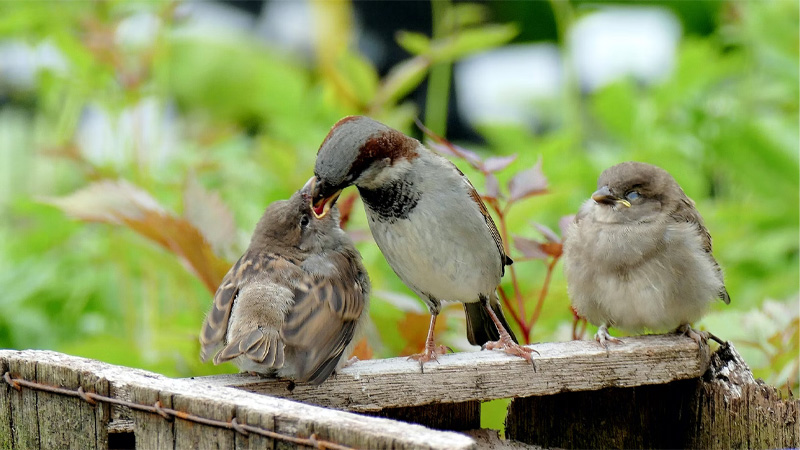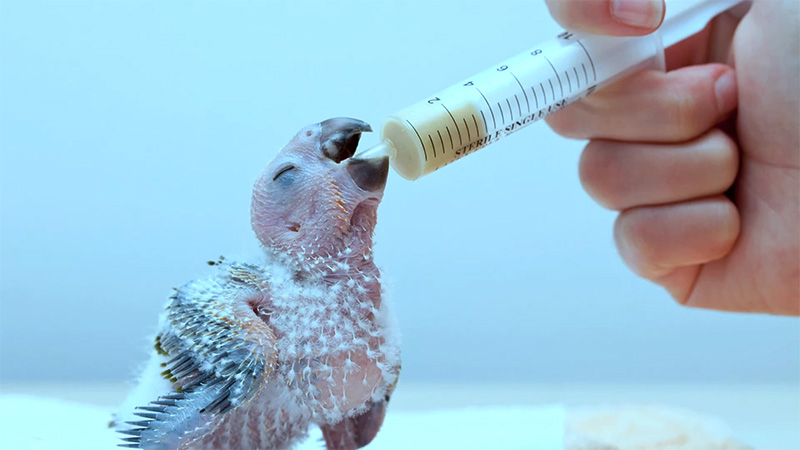Taking care of a baby bird can be a rewarding and fulfilling experience, but it also requires knowledge, patience, and dedication.
Whether you have stumbled upon an abandoned nestling or found a fallen fledgling, this comprehensive guide will equip you with the essential information to provide the best care for these delicate creatures.
In this guide, we will explore how to take care of a baby bird, from creating a safe and comfortable environment to meeting its dietary needs.
We will also discuss the importance of seeking professional help when necessary and provide tips on how to gradually prepare the bird for eventual release into the wild.
Remember, every baby bird deserves a chance to thrive, and with the right guidance, you can make a positive impact on their lives. Let’s embark on this journey of compassion and care together!

How to Take Care of a Baby Bird?
Taking care of a baby bird can be a rewarding and fulfilling experience. However, it requires careful attention and knowledge to ensure the bird’s well-being. Here are some guidelines to help you take care of a baby bird:
Assess the Situation
Before intervening, observe the bird from a distance to determine if it is truly in need of help. Sometimes, baby birds may appear abandoned when their parents are nearby. If the bird is injured, weak, or in immediate danger, it may require assistance.
Create a Safe Environment
Prepare a warm and quiet space for the baby bird. Use a cardboard box or a small cage lined with soft, clean cloth or paper towels. Ensure that the enclosure has proper ventilation and is away from drafts, direct sunlight, and household pets.
Wear Gloves
When handling the baby bird, always wear gloves to minimize the risk of transmitting diseases or causing stress. Birds are delicate creatures, and rough handling can cause harm.
Contact a Wildlife Rehabilitator

It is crucial to contact a licensed wildlife rehabilitator or a local bird rescue organization as soon as possible. They have the expertise and resources to provide appropriate care for the bird.
They can guide you through the process and may even be able to take the bird off your hands.
Feeding the Bird
Until you can reach a wildlife rehabilitator, you may need to provide temporary nourishment. However, feeding a baby bird can be challenging, and it is best left to professionals. In general, avoid feeding the bird cow’s milk, bread, or other human foods, as they can be harmful.
Instead, offer a commercial baby bird formula or a homemade mixture recommended by the rehabilitator.
Maintaining Warmth
Baby birds are unable to regulate their body temperature effectively, so it is crucial to keep them warm.
Use a heating pad or a hot water bottle wrapped in a towel to create a warm area in the enclosure. Ensure that the bird can move away from the heat source if it becomes too warm.
Hydration
Baby birds can easily become dehydrated. Provide a shallow dish of water in the enclosure, making sure it is shallow enough for the bird to drink from without drowning.
However, be cautious as some baby birds may not know how to drink from a dish and may require assistance from a rehabilitator.
Minimize Stress
Keep the baby bird’s environment as quiet and calm as possible. Limit human interaction to feeding and cleaning. Excessive handling and noise can cause stress, which can be detrimental to the bird’s health.
Observe and Document
Take note of any changes in the bird’s behavior, appetite, or physical condition. This information will be valuable for the rehabilitator when assessing the bird’s progress.
Release the Bird
Once the bird has received appropriate care and is deemed healthy by a rehabilitator, they will guide you on the best time and location for release.
It is essential to release the bird in appropriate habitat, away from potential dangers and with access to food and water sources.
Remember, it is always best to consult with a professional wildlife rehabilitator when caring for a baby bird. They have the necessary knowledge and experience to ensure the bird’s well-being and increase its chances of survival in the wild.
When to Take a Baby Bird to a Wildlife Rehabilitator?

Knowing when to take a baby bird to a wildlife rehabilitator is crucial for its well-being. Here are some situations in which it is recommended to seek professional help:
The Bird Is Injured
If the baby bird has visible injuries, such as a broken wing or leg, bleeding, or open wounds, it requires immediate attention from a wildlife rehabilitator. Do not attempt to treat the injuries yourself, as improper handling can cause further harm.
The Bird Is Weak or Lethargic
If the baby bird appears weak, unable to stand or move properly, or is excessively lethargic, it may be a sign of illness or dehydration. A wildlife rehabilitator can assess the bird’s condition and provide appropriate care.
The Bird Is Orphaned
If you are certain that the baby bird is orphaned and its parents are not present or unable to care for it, it is best to contact a wildlife rehabilitator. They can provide the necessary care and ensure the bird’s survival.
The Bird Is in Immediate Danger
If the baby bird is in immediate danger, such as being in the middle of a busy road or near a dangerous area, it is important to intervene quickly. Safely move the bird to a secure location and contact a wildlife rehabilitator for further guidance.
The Bird Is Unable to Eat or Drink
If the baby bird is not eating or drinking on its own, it may require assistance from a professional. Inability to feed can be a sign of illness or injury, and a rehabilitator can provide the necessary support.
The Bird Is a Protected or Endangered Species
If you come across a baby bird that belongs to a protected or endangered species, it is essential to contact a wildlife rehabilitator immediately. They will have the expertise and permits required to handle and care for these species.
You Are Unsure about the Bird’s Needs
If you are unsure about how to properly care for the baby bird or have concerns about its well-being, it is always best to consult with a wildlife rehabilitator. They can provide guidance and ensure that the bird receives the appropriate care.
Remember, wildlife rehabilitators are trained professionals who have the knowledge and resources to provide the best care for baby birds.
It is important to contact them as soon as possible to ensure the bird’s well-being and increase its chances of survival.
What Do I Feed a Baby Bird?

Feeding a baby bird can be a delicate task, as their nutritional needs vary depending on their species and age.
It is crucial to consult with a wildlife rehabilitator or a bird expert for specific guidance. However, here are some general guidelines on what to feed a baby bird:
Commercial Baby Bird Formula
Many pet stores and wildlife rehabilitation centers carry specialized baby bird formulas. These formulas are designed to provide the necessary nutrients for healthy growth.
Follow the instructions on the package carefully, as different formulas may have different preparation methods.
Homemade Baby Bird Formula
If a commercial formula is not available, you can prepare a homemade mixture. However, it is essential to consult with a professional to ensure the recipe is appropriate for the bird’s species.
A common homemade formula consists of a mixture of baby cereal, hard-boiled egg yolk, and water. This mixture should be blended into a smooth consistency.
Insectivorous Diet
Some baby birds, such as robins or bluebirds, require an insectivorous diet. In this case, you may need to provide small insects like mealworms, crickets, or fruit flies.
Ensure that the insects are gut-loaded, meaning they have been fed a nutritious diet before being offered to the bird.
Softened Fruits and Vegetables
As the baby bird grows, you can introduce small pieces of softened fruits and vegetables into its diet. Offer small, bite-sized pieces of fruits like berries, melons, or bananas.
Vegetables like peas, corn, or cooked sweet potatoes can also be provided. Ensure that the pieces are small enough for the bird to swallow easily.
Avoid Harmful Foods
It is crucial to avoid feeding baby birds certain foods that can be harmful to their health. These include bread, cow’s milk, processed foods, and foods high in salt or sugar. These items can cause digestive issues or nutritional imbalances.
Feeding Technique
Feeding a baby bird requires patience and a gentle touch. Use a small syringe or a clean dropper to offer the food. Ensure that the food is at an appropriate temperature, neither too hot nor too cold.
Place the syringe or dropper near the bird’s beak and allow it to take small sips or bites at its own pace. Be careful not to force-feed the bird, as this can cause choking or aspiration.
FAQs
To find a wildlife rehabilitator, you can start by contacting your local animal control agency, animal shelter, or veterinarian. They may have information on licensed rehabilitators in your area.
It is generally not recommended to keep a baby bird as a pet. Birds have complex needs and require specialized care, including a proper diet, social interaction, and a suitable environment.
The time it takes for a baby bird to fledge, or leave the nest, varies depending on the species. Some birds may fledge as early as two weeks after hatching, while others may take several weeks.
Feeding a baby bird worms or insects you find in your garden is generally not recommended. Wild-caught insects may carry parasites or pesticides that can be harmful to the bird.
If you accidentally touch a baby bird, it is unlikely to cause harm or result in the parents abandoning it. Contrary to popular belief, birds do not have a strong sense of smell and will not reject their young based on human scent.
Final Words
Caring for a baby bird requires a delicate balance of knowledge, patience, and compassion. By following the guidelines outlined in this guide, you can provide the best possible care for these vulnerable creatures.
Remember to always prioritize their safety and well-being, and seek professional help when needed.
Taking care of a baby bird is not only a responsibility but also an opportunity to make a positive impact on their lives. Your dedication and nurturing can help them grow into healthy, independent birds ready to take flight in the wild.
As you embark on this journey of caring for baby birds, remember that each one is unique and may require specific care.
Stay observant, adaptable, and open to learning, and you will be rewarded with the joy of witnessing their growth and eventual release into their natural habitat.